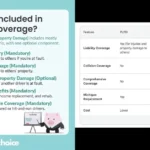Putting a house in trust is a strategic move often employed by individuals and families to manage their real estate, protect their assets, and ensure the smooth transition of property ownership. Trusts have long been associated with estate planning, but in recent years, they have become a favored tool for various legal, financial, and tax benefits. This guide will delve deeply into the subject, helping you understand the intricacies, advantages, and potential downsides of placing your home in a trust.
What is a Trust?
A trust is a legal arrangement where one party, known as the trustor or grantor, transfers assets to another party, the trustee, to manage them for the benefit of a third party, the beneficiary. Trusts can be used for many types of assets, including real estate. They are often employed to ensure that assets are distributed according to the trustor’s wishes, avoid probate, minimize estate taxes, or protect the assets from creditors.
When you put your house in a trust, you are essentially transferring ownership of your home to the trust while maintaining control over the terms of how the property will be managed and distributed.
Types of Trusts for Real Estate
There are various types of trusts that can be used for putting a house in trust, each offering different benefits and levels of control. Understanding these types will help in deciding which is the best fit for your situation.
1. Revocable Living Trust
A revocable living trust is one of the most commonly used trusts for estate planning. In a revocable trust, the trustor maintains full control over the trust and can modify or revoke it at any time during their lifetime. The main advantage of a revocable living trust is the ability to avoid probate, which can be a lengthy and expensive process.
Key Benefits:
- Avoids probate: When you pass away, your home can be transferred directly to your beneficiaries without having to go through probate court.
- Control: You can change the terms of the trust, remove or add assets, and modify beneficiaries while you are alive.
- Privacy: Since the trust doesn’t go through probate, it keeps the details of your estate private.
Drawbacks:
- No protection from creditors: Because you maintain control over the assets, a revocable trust does not provide protection from creditors.
- Estate taxes: The value of the home is still considered part of your estate, meaning it could be subject to estate taxes.
2. Irrevocable Trust
An irrevocable trust is a trust that cannot be modified or revoked once it is established, except under very specific conditions. When you transfer your home into an irrevocable trust, you give up ownership and control over the property, and the trustee manages it according to the terms you set in the trust.
Key Benefits:
- Protection from creditors: Once the home is placed in an irrevocable trust, it is generally protected from creditors, as you no longer own the asset.
- Tax benefits: Since the home is no longer part of your estate, its value is not subject to estate taxes.
- Medicaid eligibility: In some cases, placing your home in an irrevocable trust can help you qualify for Medicaid while protecting your home from being used to pay for long-term care expenses.
Drawbacks:
- Lack of control: Once the trust is established, you cannot make changes or revoke the trust without the approval of the beneficiaries and the court.
- Complexity: Irrevocable trusts are more complicated to set up and manage compared to revocable trusts.
3. Testamentary Trust
A testamentary trust is a trust that is created through a will and only comes into effect after the trustor’s death. This type of trust does not provide the same benefits during the trustor’s lifetime, but it can still offer advantages for estate planning and asset management after death.
Key Benefits:
- Customizable distribution: You can specify how and when the property should be distributed to beneficiaries, which is useful for minor children or beneficiaries who may not be financially responsible.
- Control after death: You can dictate the terms of the trust in your will, ensuring that your assets are handled according to your wishes.
Drawbacks:
- Does not avoid probate: Since a testamentary trust is created through a will, the estate must still go through probate before the trust is activated.
- No protection from creditors during your lifetime: As the trust only takes effect after your death, your assets are not protected from creditors while you are alive.
4. Qualified Personal Residence Trust (QPRT)
A Qualified Personal Residence Trust (QPRT) is a special type of irrevocable trust designed specifically for transferring ownership of your home while retaining the right to live in it for a specified number of years. After the trust’s term ends, ownership of the property passes to the beneficiaries.
Key Benefits:
- Tax savings: QPRTs can provide significant estate tax savings by removing the value of the home from your estate at a discounted rate.
- Retain the right to live in the home: You can continue to live in the home rent-free for a specified number of years.
Drawbacks:
- Loss of control after the term ends: Once the term of the trust expires, you must either move out or pay rent to the beneficiaries if you want to continue living in the home.
- No flexibility: The terms of the trust cannot be changed, and the home cannot be sold without dissolving the trust.
Benefits of Putting a House in Trust
There are several advantages to putting your house in a trust, depending on the type of trust you choose.
1. Avoiding Probate
One of the primary reasons individuals put their homes in a trust is to avoid probate. Probate is the legal process of validating a will and distributing assets after someone’s death. This process can be time-consuming, costly, and expose the details of your estate to the public. By placing your home in a trust, you can bypass probate and ensure a smoother transfer of property to your beneficiaries.
2. Privacy
Trusts provide a level of privacy that wills do not. Since wills must go through probate, they become part of the public record. A trust, on the other hand, allows you to keep your estate’s details private.
3. Control
Trusts offer a significant level of control over how and when your assets, including your home, are distributed. This is especially beneficial if you have minor children, dependents with special needs, or beneficiaries who may not be financially responsible.
4. Protection from Creditors
In some cases, particularly with irrevocable trusts, you can protect your home from creditors. Once the home is transferred into the trust, it is no longer considered your property, making it difficult for creditors to claim it as an asset to satisfy debts.
5. Medicaid Planning
For those looking to qualify for Medicaid while protecting their home from being used to pay for long-term care, placing the home in an irrevocable trust can be a useful strategy. However, Medicaid has a five-year look-back period, so it’s important to plan well in advance.
6. Estate Tax Reduction
By transferring your home into a trust, particularly an irrevocable trust, you can reduce the value of your estate and potentially lower or eliminate estate taxes. This is especially beneficial for individuals with large estates that exceed the federal estate tax exemption.
Potential Drawbacks of Putting a House in Trust
While there are many benefits to putting your home in a trust, there are also potential drawbacks to consider.
1. Cost
Setting up a trust, especially an irrevocable trust, can be costly. You will likely need to work with an attorney to draft the trust document, and there may be ongoing administrative fees associated with managing the trust.
2. Complexity
Trusts can be complex legal arrangements, and managing a trust may require a higher level of responsibility and oversight than a will. It’s important to fully understand the terms of the trust and ensure that you are comfortable with the level of control (or lack thereof) over your property.
3. Loss of Control
With an irrevocable trust, you are giving up ownership and control of your home. This means that once the trust is established, you cannot make changes to the trust or access the property without the permission of the trustee or beneficiaries.
4. Potential Tax Consequences
While trusts can offer tax benefits, there may also be tax consequences, particularly if the home is sold while it is in the trust. It’s important to consult with a tax professional before transferring your home into a trust to understand the potential tax implications.
How to Set Up a Trust for Your Home
Setting up a trust for your home requires careful planning and attention to detail. Here are the general steps involved in creating a trust:
1. Consult an Attorney
Trusts are complex legal documents, and it’s essential to work with an attorney who specializes in estate planning. They can help you determine which type of trust is best for your situation and ensure that the trust is properly drafted.
2. Choose a Trustee
The trustee is responsible for managing the trust and distributing assets according to the trust’s terms. You can name yourself as the trustee if you’re setting up a revocable living trust, or you can appoint a trusted individual or financial institution to serve as trustee.
3. Draft the Trust Document
Your attorney will draft the trust document, which outlines the terms of the trust, including how the property will be managed and distributed. Be sure to review the document carefully to ensure it reflects your wishes.
4. Transfer the Property to the Trust
Once the trust document is completed, you will need to transfer ownership of the property to the trust. This involves changing the title of the property from your name to the name of the trust.
5. Update Your Estate Plan
If you have a will, you may need to update it to reflect that your home is now part of the trust. Be sure to review your entire estate plan to ensure it aligns with your goals.
Conclusion
Putting your house in a trust can offer numerous benefits, from avoiding probate to protecting your home from creditors and reducing estate taxes. However, it’s not a decision to be made lightly. Trusts are complex legal arrangements that require careful planning and consideration of your unique circumstances. By working with an experienced estate planning attorney, you can create a trust that meets your needs and ensures that your home is managed and distributed according to your wishes. Whether you’re looking to simplify the transfer of your home after death, protect it from creditors, or reduce your tax burden, placing your home in a trust can be a powerful tool in your estate planning toolkit.











